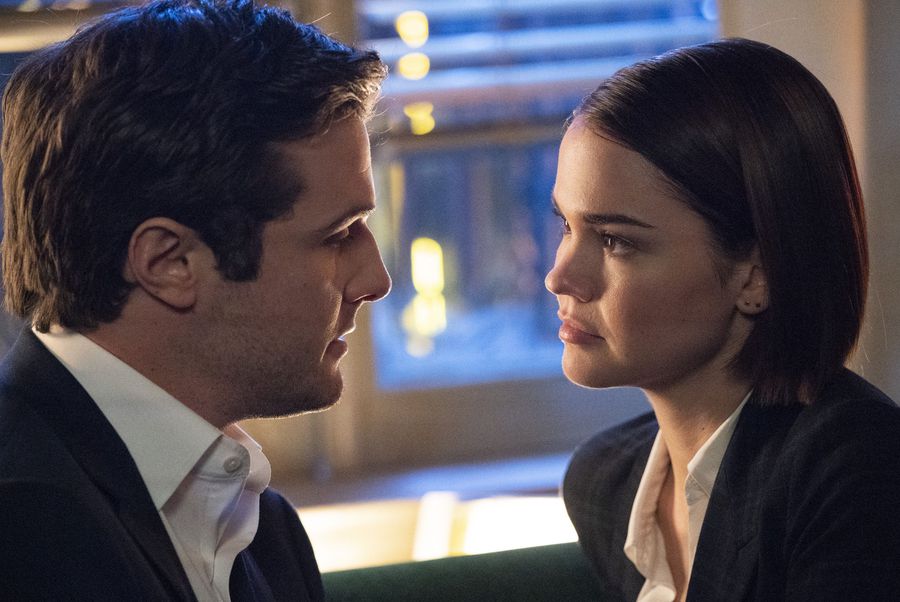Five years ago, a cable channel transformed – again..
It had been the Christian Broadcasting Network … then the Family Channel … then Fox Family … then ABC Family. Now it would be Freeform.
“’Freeform’ evokes a mood, a sense of spontaneity, creativity,” Tom Ascheim, the channel’s president, insisted. His channel would focus on “that place between childhood and adulthood, … between your first kiss and your first kid.”
That’s a tough target; Freeform has missed several times, but has hit the mark twice. On opposite coasts, those shows depict young people (likable and telegenic) starting careers amid personal chaos:
– “Good Trouble” (10 p.m. Wednesdays), shown here, is in its third season. Two adoptive sisters (previously on the series “The Fosters”) tackle life in Los Angeles; Callie is a lawyer, Mariana is a tech whiz.
– “The Bold Type” will have its fifth and final season, probably starting in the summer. Three women work at a Cosmopolitan-type magazine in New York.
On one hand, those shows can simply offer love and/or lust. “’Good Trouble’ is notorious for these juicy love triangles – love trapezoids even,” said Sherry Cola, who co-stars as Alice Kwan
On the other, the shows can be dead-serious; Alice, for instance, is a lesbian with old-world parents; that’s a welcome role for the actress who plays her. “I have always just embraced who I am and all the layers of myself, whether it’s immigrant, female, queer, Asian,” said Cola, whose family moved from Shanghai to Los Angeles when she was 4.
Both series confront modern issues. “I love being on shows that I think are pushing the envelope and telling stories that not everyone else is telling,” said Constance Zimmer, who joined “Good Trouble” this season as an intense defense lawyer. “This show has been so far ahead of the curve.”
But it’s tough to stay ahead of a fast-changing world. For instance:
– Life for young people has transformed lately, as entry-level jobs fade. It was fun to see the “Bold Type” women find quick success in Manhattan; nowadays, that seems more like a fantasy flight.
– And fresh issues keep evolving. Joanna Johnson, the “Good Trouble producer, gives an example:
“We were doing stories about Black Lives Matter,” she said, “and I thought, ‘Well, I really want to go to the source.’” She called Patrisse Cullors, a BLM co-founder, and asked her to consult and act.
Cullors soon did more. She’s played herself in eight “Good Trouble” episodes; Melina Abdullah, co-founder of BLM’s Los Angeles chapter, has played herself in nine.
There’s more, Johnson said. “Patrisse also became a writer on the show and only had to leave the writers’ room because” she was busy in the aftermath of George Floyd’s death.
Fact and fiction entwine, Cola said. “I’ll be at a protest and I’ll see Melina and she just came from the set. These are queens; these are superhumans.”
“Good Trouble” began before the pandemic, but seems to reflect the new reality for young people: Its characters must make do, living co-operatively in a former movie theater.
Some of them are trying tenuous professions: Alice (the building manager) is a comedian, Dennis is a musician, Gael is an artist. The others are Davia (a teacher) and Malika (an activist), plus Callie and Mariana, played by Maia Mitchell (shown here) and Cierra Ramirez.
When a company decided to dump the app she’d created, Mariana walked out, along with several other women. She hasn’t told them about her affair with the boss. “It’s like: ‘How do you stay true to yourself, while you also have these feelings that you can’t deny?’” Ramirez said.
That requires Ramirez’s special skill: “Cierra can cry on cute,” Mitchell said.
That skill is needed now, amid all the fresh obstacles in the freeform lives of young adults.
